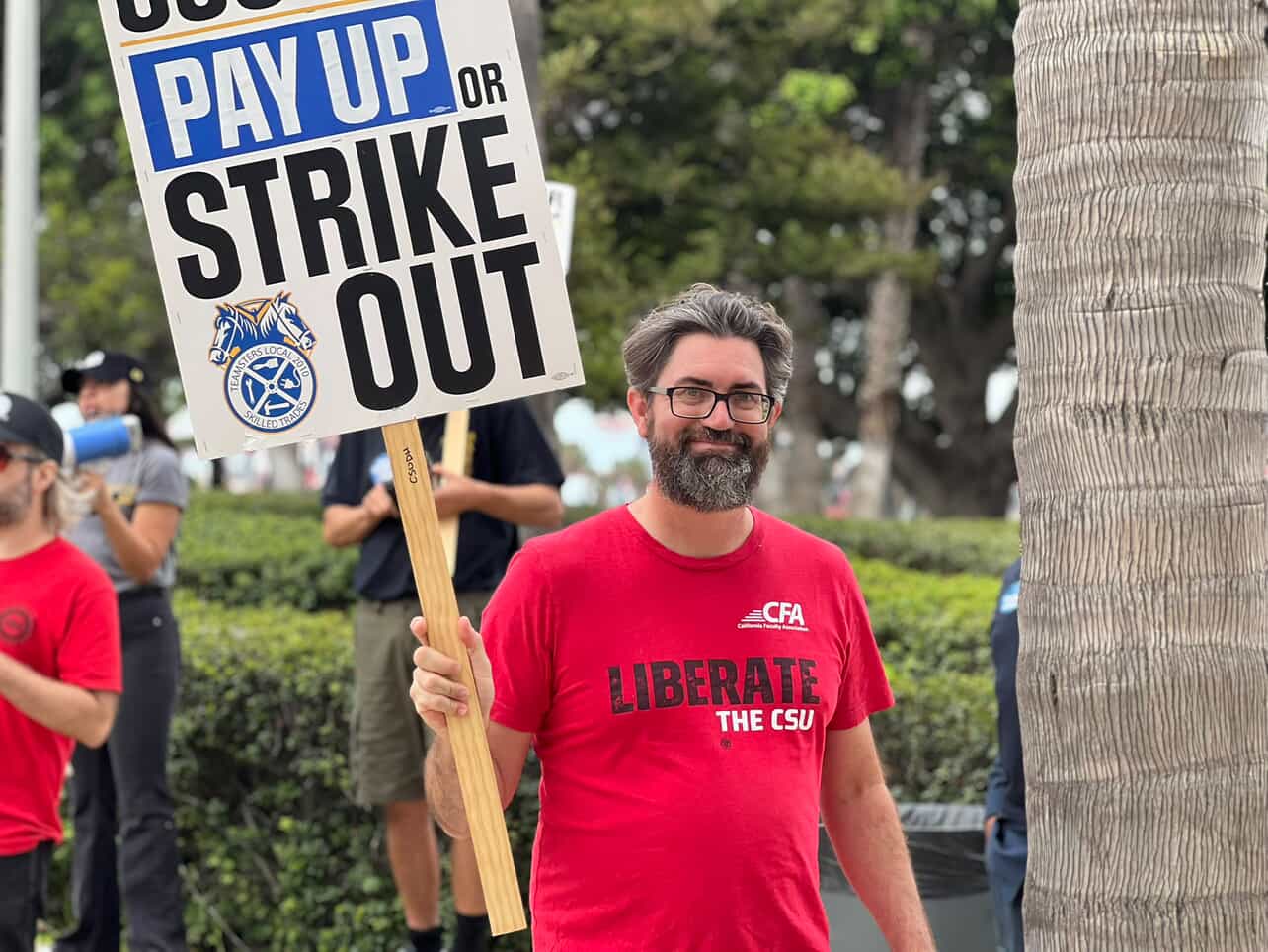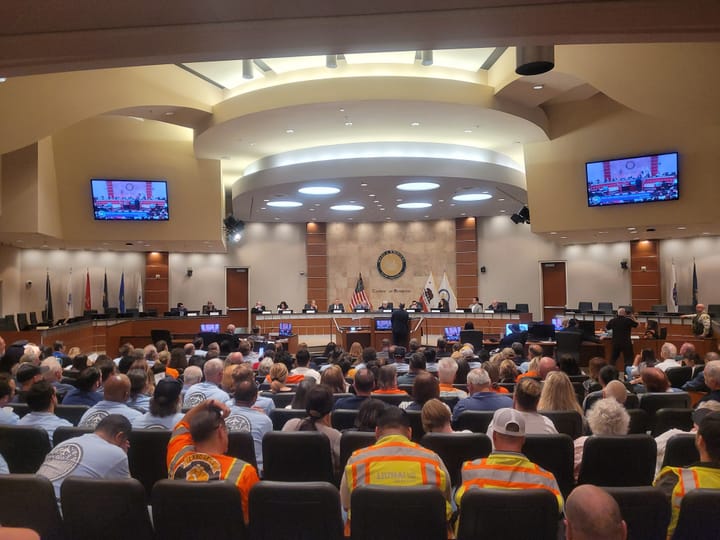Students and faculty picket CSU trustees, accuse leaders of financial mismanagement and poor transparency
CSU students and faculty rallied outside the Board of Trustees meeting earlier this week, alleging financial mismanagement, lack of transparency, and cuts that harm classrooms.

Hundreds of faculty and students from across the California State University (CSU) system, led by the California Faculty Association (CFA), picketed outside the CSU Board of Trustees committee meeting on Tuesday, Nov. 18. They accused the board of financial mismanagement and lack of transparency.
The demonstration took place outside the Chancellor’s Office in Long Beach, with faculty and students denouncing what they described as misplaced spending priorities, arguing that these budget decisions have worsened overcrowded classes, limited course availability and strained understaffed departments.
Thomas Corrigan, an associate professor of communication studies at CSU San Bernardino, challenged Chancellor Mildred Garcia’s move to provide faculty with a one-time bonus instead of negotiating sustainable raises, calling it an “austerity measure.”
Corrigan criticized the Chancellor’s decision regarding a $144 million loan from the state of California, which he said was intended to fund instruction and salary increases for Teamsters and CSU union workers.
“And instead of taking those $144 million from the legislature and putting them toward instructional and labor commitments, the Chancellor's Office has gone and offered a one time bonus to faculty and staff.”
For Corrigan, the Chancellor’s move is a ruse.
“It’s really a ploy to not fund the things that they need to fund for our students and faculty and staff,” he said. “But also to short circuit the bargaining process that is really essential for us securing sustainable, long term salary increases that are key to having livable wages.”
Corrigan added that the mismanagement of funds not only shortchanges classrooms, but threatens academic programs across the CSU system as faculty shortages increase. This threat recently materialized at his own campus.
In September, CSU San Bernardino scrapped a masters program due to accreditation issues, despite state and federal lawmakers securing $18 million in funds. A recent audit of the university’s housing department has been losing money for years. To make up for those losses, CSUSB borrowed money from other campus funds.
Forty students were slated to begin the Master of Science in Physician Assistant (MSPA) program created to address the physician shortage in the region. However, it failed to receive the provisional accreditation needed to begin.
In a letter provided by the university, it was found that “The Commission's Executive Committee did not see evidence that the program had sufficient faculty or personnel to begin the program.”
For Esperanza Arreola, a first-generation graduate student studying English at the San Bernardino campus, labor and financial concerns are paramount.
“I'm only paid about $630 a month, and I teach twice a week while holding office hours,” Arreola said. “And then that's not even counting all the grading stuff that I do, which is basically me getting paid, like, maybe $150 a week.”
As a graduate student and teaching assistant, she is pressed for time. During her first semester as a graduate student, she worked as an Instructional Student Assistant (ISA) tutor at the university and a substitute teacher for the Rialto Unified School District
Currently, however, she depends on loans.
“Right now, I just rely on the pasta that I get from the university,” Arreola said.
The financial burden will continue to increase for students.
In September 2023, the CSU approved a tuition hike of 6% a year for five years to address a budget shortfall. The changes took effect at the beginning of the 2024-25 academic year. And some students contend the system no longer represents them.
“We're called the people’s university, but if you look at the top, we're not being governed by the people,” said Megan Haynes, a graduate student also studying English at CSU San Bernardino.
Haynes criticised the trustees, claiming that they are disconnected from the needs of faculty and students.
“They're fundamentally separate from us,” she said. “I think what we need to do is reform the Board of Trustees. We need to have a process where we elect those people.”
CSU’s Board of Trustees have not yet responded to The Frontline Observer's request for comment.



